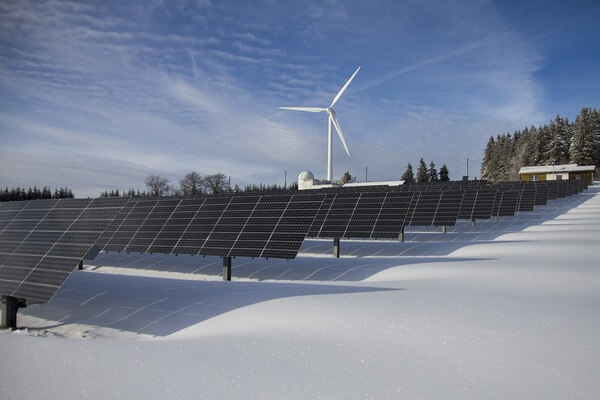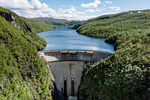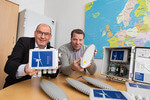News Release from windfair.net
Wind Industry Profile of
Race against time: When will the tipping point be reached?
The world is rapidly approaching a crucial point on climate change: a new study by researchers at Standford University and Colorado State University provides evidence that global warming is on track to be 1.5 degrees Celsius above the pre-industrial temperature average as early as the early 2030s, regardless of how much greenhouse gas emissions rise or fall over the next decade. The new "time to threshold" estimate is the result of an analysis that uses artificial intelligence to predict climate change based on current temperature observations from around the world.
“Using an entirely new approach that relies on the current state of the climate system to make predictions about the future, we confirm that the world is on the cusp of crossing the 1.5 C threshold,” said the study’s lead author, Stanford University climate scientist Noah Diffenbaugh. “Our AI model is quite convinced that there has already been enough warming that 2 C is likely to be exceeded if reaching net-zero emissions takes another half century,” Diffenbaugh explains.
This makes it all the more important to switch as quickly and completely as possible to renewable energies. A glimmer of hope is provided by new figures from Europe, where wind and solar power generated a record one-fifth (22 %) of the EU's electricity in 2022, overtaking fossil gas (20 %) for the first time. This is according to the European Electricity Review, published by think tank Ember. In contrast, the share of coal-fired electricity increased by only 1.5 percentage points and generated 16 % of the EU's electricity in 2022, with a year-on-year decline in the last four months of 2022.

Europe is addressing the energy crisis by rapidly expanding renewables (Image: Pixabay)
"Europe has avoided the worst of the energy crisis,” said Ember’s head of data insights, Dave Jones. “The shocks of 2022 only caused a minor ripple in coal power and a huge wave of support for renewables. Any fears of a coal rebound are now dead."
Yet the omens could not have been worse, as Europeans faced a triple crisis in the power sector the previous year: Just as Europe was scrambling to cut ties with its largest supplier of fossil gas - Russia - it faced the lowest levels of hydro and nuclear power in at least two decades, resulting in a deficit equivalent to 7 % of Europe's total electricity demand in 2022, Ember said.
Europe responded with the fastest and cheapest method, renewable energy expansion. As many as 20 countries set new records for solar production in 2022, with new renewable energy plants popping up everywhere. And there will be no return to fossil fuels in the coming year either, according to experts: The switch to wind and solar power as a response to the energy crisis will continue to accelerate. Thus the EU has already initiated emergency measures to encourage faster expansion. First countries like Germany, are already implementing these measures.
But further trouble looms: the problem is inflation, as costs are rising faster than projected revenues. Investors in Europe are also deterred by unhelpful national interventions in electricity markets. The EU must make Europe an attractive place to invest in renewables again, demands European wind energy association WindEurope.
"The EU needs to set up the mechanisms and get the money moving asap. Clean energy industries are debating now where they should invest and need clear signals now if it’s going to be Europe,” says WindEurope CEO Giles Dickson.
That's why the EU needs a Net-Zero Industry Act to strengthen Europe's clean energy industries. In addition, European supply chains need to invest in new manufacturing and logistics to become competitive and build the capacity needed to produce the low-carbon equipment needed for the Green Deal.
The model for this could be the U.S., which has currently demonstrated with the Inflation Reduction Act (IRA) how to quickly channel a lot of money into the relevant industries - so that it takes a little longer to reach the tipping point after all.
- Author:
- Katrin Radtke
- Email:
- press@windfair.net
- Keywords:
- tipping point, cliamte change, renewable energy, Europe, IRA, expansion, wind, solar, study, closer, decarbonisation, power

























